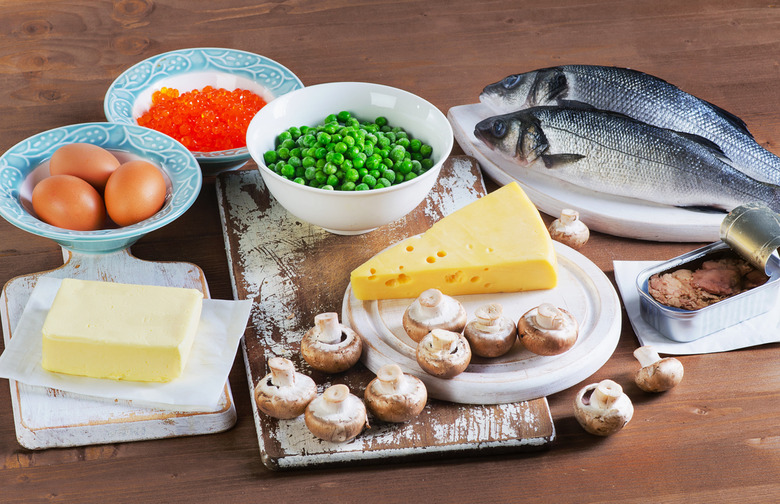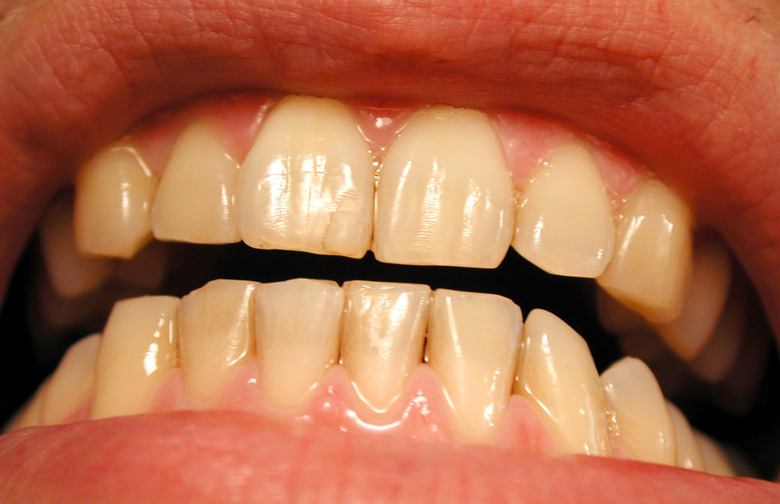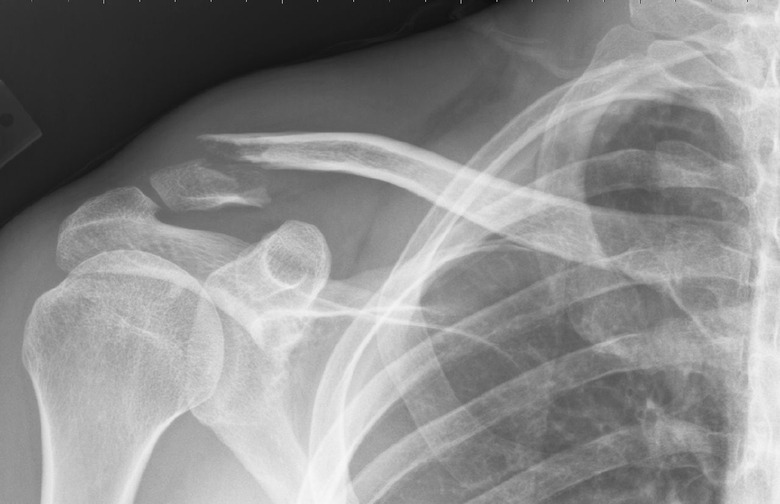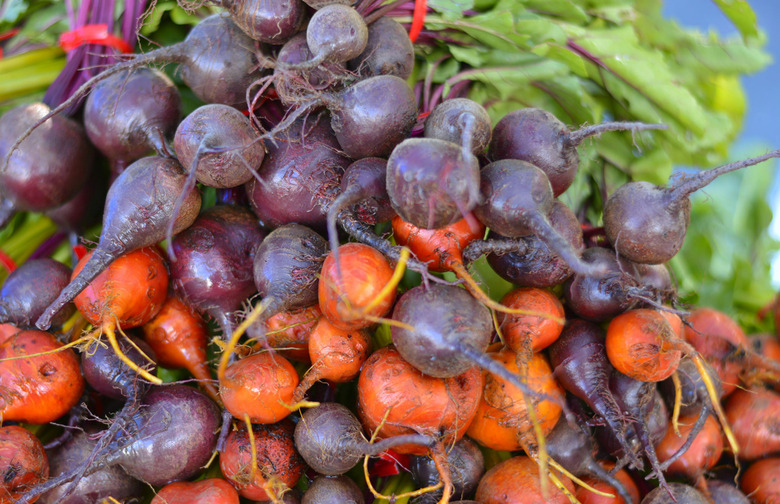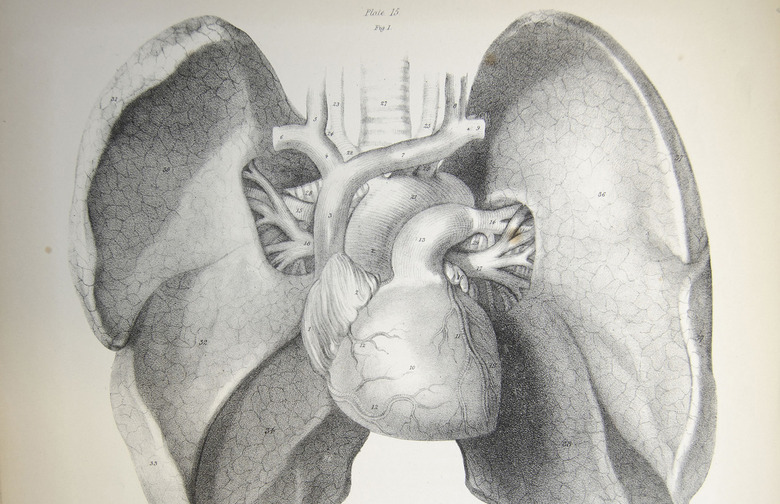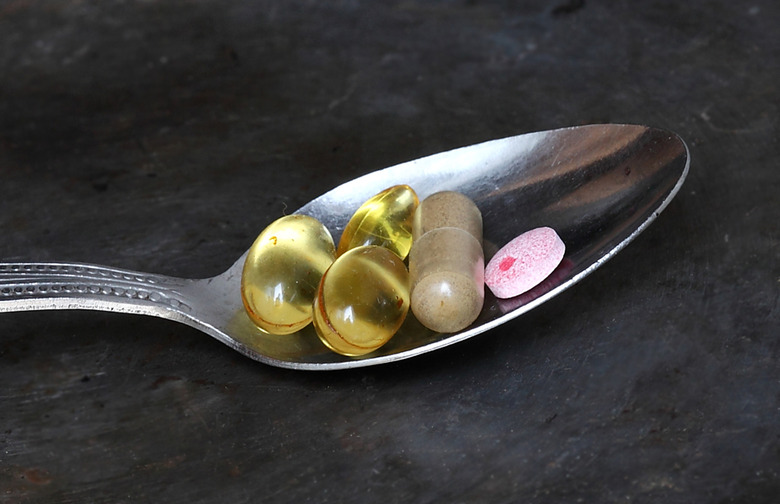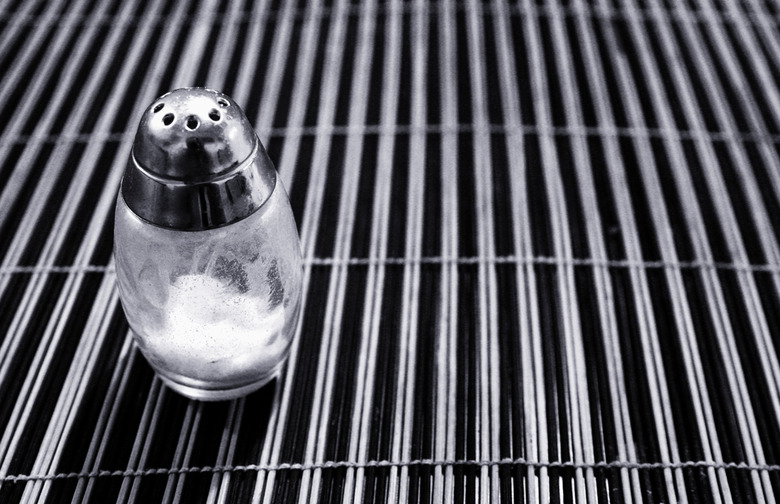8 Common Nutrient Deficiencies And Surprising Signs That You're Affected
No matter what you eat, knowing the details about your food is the best health tool you can acquire. We've gone to experts and done research to help identify what the most common nutrient deficiencies are, how symptoms of someone who is nutrient deficient can manifest, and ways in which a person can proactively combat a deficiency by eating certain foods.
Calcium's Role
Calcium is a vital mineral for bones, and it is the most abundant mineral found in humans. The majority of calcium in humans aids the bones and teeth in form and function.
Symptoms of Calcium Deficiency
"If you are not getting adequate calcium in your diet, there is a good chance you do not realize it," says Mangieri. "The body maintains normal calcium levels in the blood by pulling it from bones. Over time, though, your bones can begin to suffer the consequences of inadequate intake. Poor calcium intake can lead to low bone density, setting you up for bones fractures and breaks as well as more serious conditions such as osteoporosis."
Foods Rich in Calcium
"Calcium can be found in many foods, but for those that eliminate dairy products, getting adequate amounts can be a challenge," says Mangieri. If you don't get calcium from dairy, you can find it in leafy greens, bok choy, and okra.
Fiber's Role
While fiber is a carbohydrate (macronutrient) and not a vitamin or mineral (micronutrient), it still has a place on this list. Dr. Dubost says that, other than regulating proper bowel function, "[f]iber has more benefits such as helping to regulate cholesterol" and blood sugar.
Symptoms of Fiber Deficiency
"Irregular bowel function including constipation and hemorrhoids" are symptoms of a fiber deficiency, says Dr. Dubost.
Foods Rich in Fiber
If you want to increase your fiber intake, look to wheat, bran, fruits like apples, bananas, and strawberries, and vegetables like carrots, beets, and potatoes.
Iron's Role
The U.S. National Library of Medicine says that human bodies need "iron to make the oxygen-carrying proteins hemoglobin and myoglobin. Hemoglobin is found in red blood cells and myoglobin is found in muscles."
Symptoms of Iron Deficiency
"Worldwide, iron deficiency is the most common nutritional deficiency," according to Mangieri. "We see it across different lifespans, from children through the adult years. Symptoms of iron deficiency can go unrecognized because they can be mistaken for behavioral or motivational problems. Even slightly lowered iron levels can cause fatigue, thinking impairments, and impaired productivity. Younger children with iron deficiency may be restless [or] unable to pay attention. Other deficiency symptoms may include weakness, dizziness, headaches, or pale skin and fingernails."
Foods Rich in Iron
Animal muscle is a great source of iron. Red meat, pork, seafood, and poultry are great sources for those who eat meat, and those who don't can look to spinach, raisins, and beans.
Magnesium's Role
"Magnesium is needed as an important cofactor for over 300 enzyme reactions in the body," says Dr. Hall. "Not only is magnesium lacking in our diet today (due to soil depletion and processed foods), but your body also wastes magnesium under stress. So unless you live a stress-free life, you could use some more."
Symptoms of Magnesium Deficiency
Dr. Hall lists "leg cramps, muscle twitches, anxiety, insomnia, [and] constipation" as the tell-tale signs of a magnesium deficiency.
Foods Rich in Magnesium
According to Dr. Hall, eating "dark chocolate, cacao, fruits (especially pure orange juice), and unprocessed grains" will help you get enough magnesium.
Potassium's Role
"Potassium helps the kidneys, heart, and other organs work properly," says Dr. Hall.
The U.S. National Library of Medicine lists the building of proteins and muscle, the breaking down and use of carbohydrates, and the control of both the heart's electrical activity and the body's acid-based balance as ways in which potassium functions.
Symptoms of Potassium Deficiency
For those who are potassium deficient, Dr. Dubost lists potential symptoms "such as muscle cramps, weakness, diarrhea, nausea, low blood pressure, [and] changes in heart rhythm."
Foods Rich in Potassium
While bananas and avocados probably jump to the front of your mind, Dr. Hall also recommends whole grains, milk, vegetables, beans, and peas.
Vitamin B12's Role
"Vitamin B12 aids the production of DNA and helps make neurotransmitters in the brain," says Dr. Hall. Additionally, the U.S. National Library of Medicine says that the "body needs vitamin B12 to make red blood cells" and that these "blood cells provide oxygen to body tissues."
Symptoms of Vitamin B12 Deficiency
A vitamin B12 deficiency can lead to anemia — a lack of healthy red blood cells — which has symptoms including fatigue, an increase in heart rate, pale skin, and insomnia.
Foods Rich in Vitamin B12
"Boost your levels of B12 by eating more fish, chicken, milk, and yogurt," Dr. Hall says. "If you're vegan, opt for vegan foods fortified with B12, such as non-dairy milk, meat substitutes, and breakfast cereals."
Vitamin D's Role
"Vitamin D has many important roles in the body and deficiency symptoms are not always obvious. It plays a very important role in bone health, especially building and maintaining strong bones. Vitamin D aids in the absorption of calcium and phosphorus in our bodies, regulating how much of those two nutrients can make it into the bones," says Mangieri.
Symptoms of Vitamin D Deficiency
"Many Americans are walking around Vitamin D deficient and do not even realize it," says Mangieri. "The most obvious sign of vitamin D deficiency is in children. Vitamin D deficiency in the early years of life can lead to the development of rickets or defective bone growth. In teenagers and adults, however, the signs may be less apparent. Adolescents who are vitamin D deficient may fail to develop the bone density needed to keep their bones strong and healthy. In older adults, deficiency may lead to joint or muscle pain, which may easily be mistaken for other conditions."
Foods Rich in Vitamin D
"It's important to have your vitamin D level checked at your annual exam. If you are deficient, you may need a dietary supplement to bring your levels up to a normal range," says Mangieri. Some foods rich in this essential vitamin include cooked trout, mushrooms, caviar, and lean cuts of pork.
Zinc's Role
The human body's immune system requires zinc in order to function properly. A human's senses of taste and smell require this micronutrient, and our cells also need zinc to grow and divide.
Symptoms of Zinc Deficiency
"This mineral tends to be low in older people and anyone under a lot of stress. It's not so much that low zinc makes you crave, but it does significantly dull your sense of taste, prompting you to add more salt and sugar to foods while seeking out extra sugary and salty items before you're truly satisfied," says Dr. Hall.
Foods Rich in Zinc
"This mineral isn't easy to find," says Dr. Hall, "but it's most prevalent in some animal sources like oysters, crab, liver, dark chicken meat, and, to a lesser extent, eggs, green peas, and nuts."
